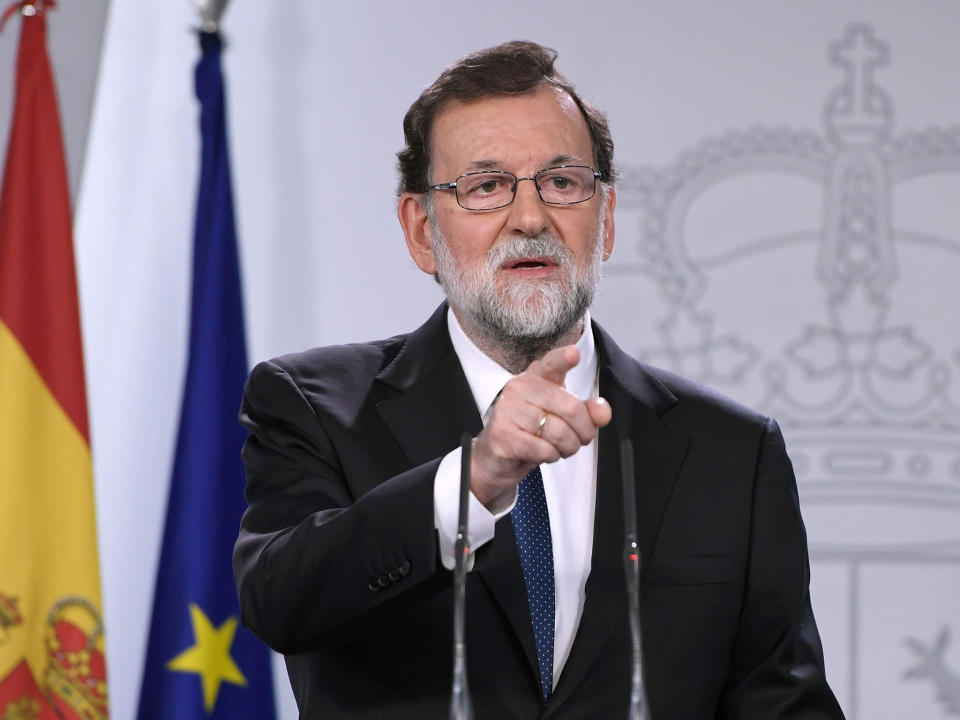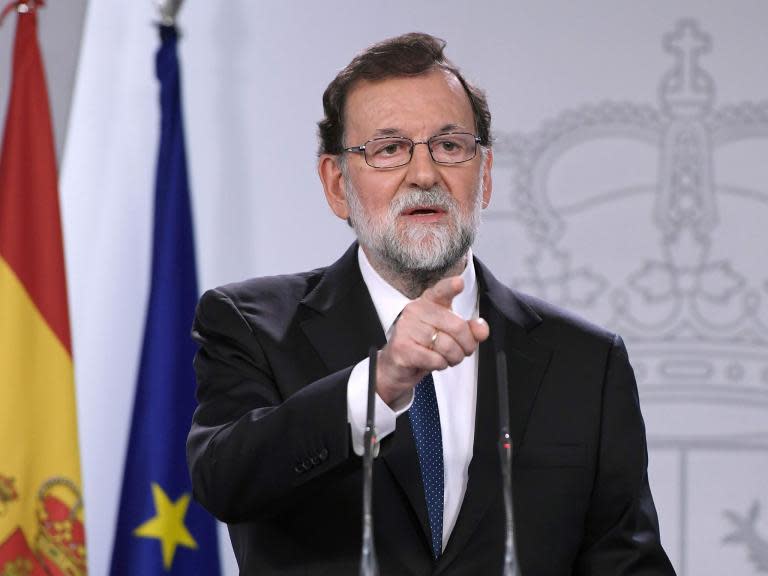Mariano Rajoy has staged a 'coup d’état' against democracy in Catalonia
The Spanish government has suspended Catalonia’s self-rule, 78 years after Franco’s fascists did the same. Prime Minister Mariano Rajoy has decided he doesn’t like the democratically elected government of Catalonia and has announced he will replace its members with his own ministers.
He has also decided to prevent the Catalan parliament from choosing a new president, to validate all the legislative initiatives it may table in the future and to call for a snap Catalan election in the coming months. According to several high-ranking People’s Party officials, pro-independence parties could be banned in the run-up to the vote, or just after it.
Rajoy has also announced that his cabinet will have full control of the Catalan government’s finances (it already has it) and seize control of the Catalan public broadcasting service (TV, radio and news agency). This is how he plans to change the political will of Catalan citizens: by abusing the most basic democratic principles, the rule of law and the due respect for his fellow citizens.
Rajoy, the politician who irresponsibly started a Spain-wide campaign against the new agreement on Catalonia’s home rule 10 years ago, has now taken a step that no other Spanish politician dared to take in a democracy, not even during the worst times of the Basque violent conflict.
By suspending Catalonia’s home rule, the Spanish government, with the incredible support of the Socialist party, has destroyed one of the basic consensuses that led to democracy in the late Seventies: the recovery of Catalonia’s self-rule. By doing so, Rajoy has staged a coup d’état against Catalonia’s institutions and against democracy in the whole of Spain.
It is more than evident that this is an escalation, without precedent, of tensions and will provoke hundreds of thousands of Catalan citizens to take to the streets to defend Catalonia’s home rule and institutions, as already happened yesterday.
With this step, Rajoy has scorned Catalan President Carles Puigdemont’s gesture to suspend the effects of the declaration of independence, a gesture that confounded more than a few of Catalonia’s citizens who understood that the 1 October referendum gave a clear mandate to declare independence, especially after they stoically withstood blows from the Spanish police’s batons as they peacefully queued to democratically express their views by voting.
There are many gestures that Rajoy could have made to de-escalate the crisis and that he neglected to take. He could have removed the 10,000 paramilitary police sent to stop the referendum, who are still housed on three large cruise ships tied up in Barcelona’s and Tarragona’s ports. They are the ones who are responsible for what Human Rights Watch concluded was an excessive use of force against peaceful citizens that injured 893 people.
Or he could have tried to stop all the court cases the Spanish government has triggered against Catalan politicians and elected officials. The leaders of the two main grassroots pro-independence organisations were sent to prison with no bail and accused of sedition last Monday; the President of the Catalan parliament is facing three criminal charges for allowing a debate on self-determination; the mayors of 800 Catalan towns are indicted for having collaborated on the 1 October referendum; 200 Catalan government and civil society websites have been shut down; and dozens of young people are charged with having replicated the removed websites.
Instead of taking measures towards de-escalation, the Spanish government has doubled down and pushed the Catalan government into a dead-end street. With not many alternatives to counter this unprecedented attack against Catalonia’s self-rule and democracy, the Catalan parliament will hold a plenary session next week, which will become a historic one.
Albert Royo-Mariné is secretary general of the Public Diplomacy Council of Catalonia (DIPLOCAT)

 Yahoo News
Yahoo News 

